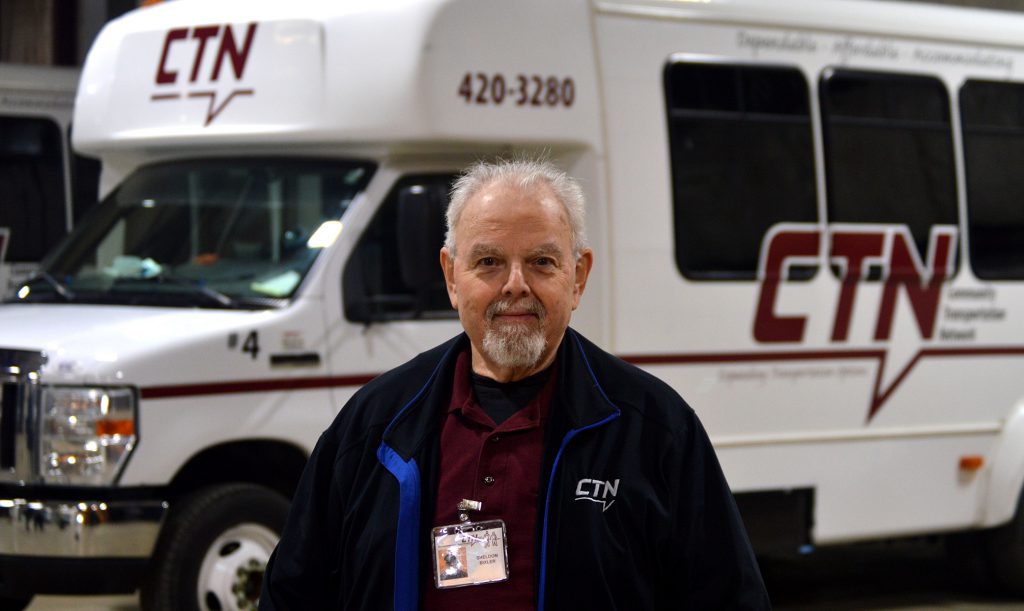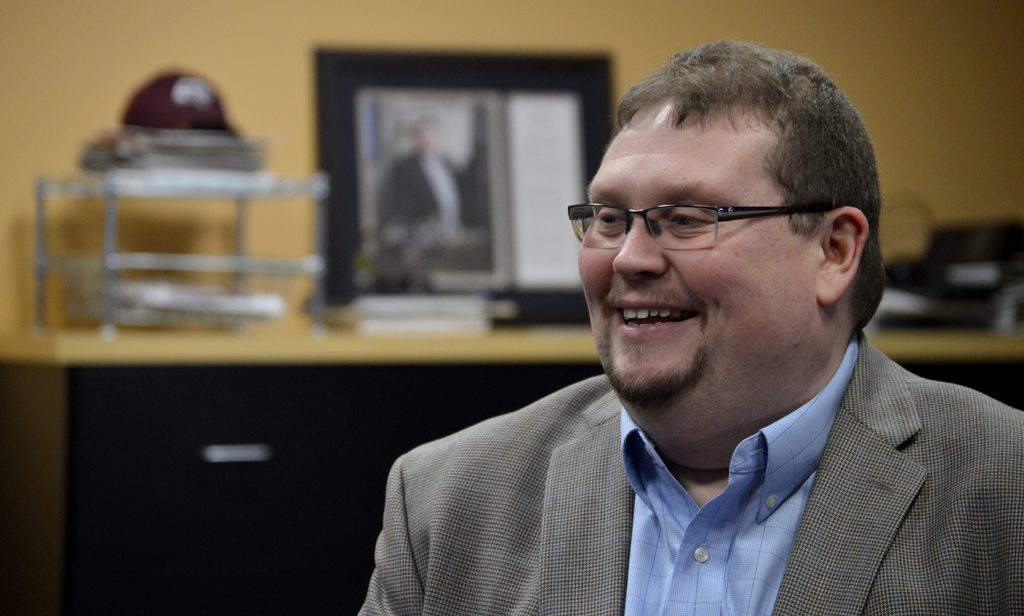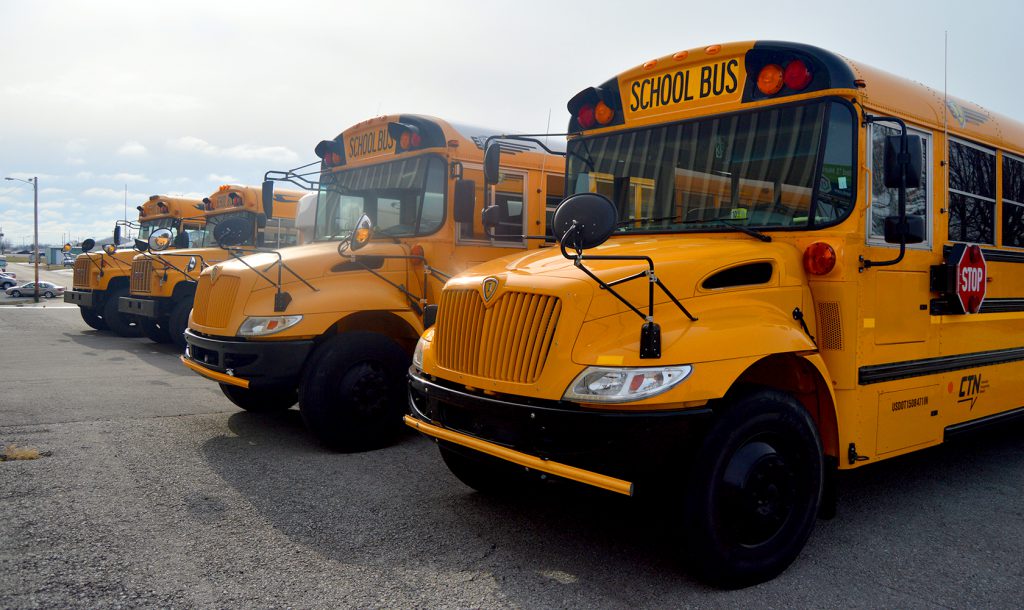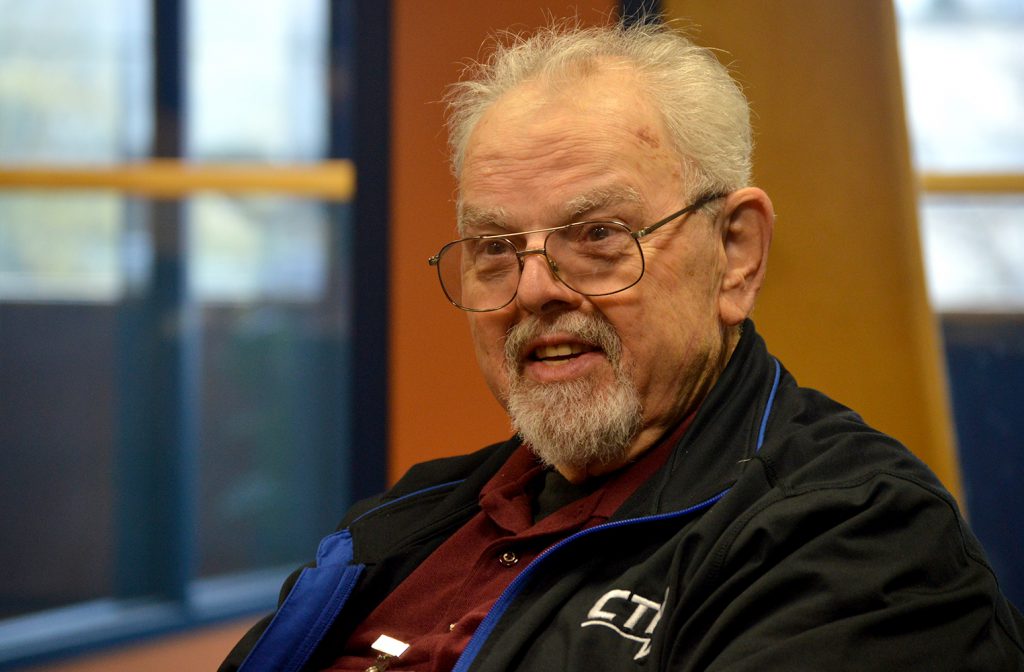Transportation Drives Hope in Allen County

Justin Clupper knew clients appreciated the Community Transportation Network, but he didn’t expect tears.
Clupper is executive director of the nonprofit known as CTN. The agency takes people all over Allen County to medical appointments and other destinations. During a ride-along to observe, Clupper asked a new client what it meant to have CTN take her to dialysis treatments. To his surprise the woman started crying.

They weren’t tears of sadness, but of gratitude.
“When I think about what CTN means to me, that’s what happens,” she explained. “I am so blessed to be able to have an organization like CTN. I feel comfortable. I feel safe.”
Stories like these stir Clupper’s passion for the job. “I love the impact and the potential for impact that we have,” he says.
Others in the transport industry feel the same.
“It’s my ministry to help and serve the needy,” says Darrel Dodane, marketing director for the District Council of Fort Wayne Society of St. Vincent de Paul. The society operates a free Care-Van program that takes clients to and from medical appointments. “We’re all God’s children,” Dodane says. “Some need more help than others.”
The St. Joseph Community Health Foundation has supported the society since 2001 and CTN since 2000, providing funds totaling $78,000 for the society and over $793,000 for CTN. The Foundation sees free or low-cost medical transportation services as a critical healthcare need for some, including those who are disabled and require special accommodations.
Dodane sums it up: “There’s always been a need to transport people to their doctors and to their appointments, and some people can’t afford to pay for that.”
Funds from organizations like the St. Joe Foundation will be important for CTN moving forward. The agency gets 50 percent of its revenue from philanthropy and is planning a major expansion.
“Without the philanthropic support of foundations and other individuals throughout our community, CTN would not exist,” Clupper says.
“No one left behind”
CTN has a fleet of 36 vehicles, 10 of which can’t fit in its current heated garage. They stay parked outdoors—not a good idea in the winter. Cold weather causes the vans’ lifts to malfunction or not to work at all. The drivers, then, can’t help wheelchair-bound clients. This spring CTN breaks ground on an addition that will double garage space to about 42,000 square feet. The new garage will fit the current fleet and more.

“We’re doubling our garage, so we can double our impact,” Clupper says. He added that CTN board members are creating a strategic plan for the organization’s future. “We’re excited about what we’re doing right now and what 2020 will bring. It’s going to be a fun year.”
In 2019, CTN drivers logged more than 103,000 trips for 8,800 different riders. The services fill transportation gaps for 85 local groups and agencies, many of them nonprofits. CTN serves Turnstone, Brightoint, and Easter Seals ARC, as well as domestic violence victims who need transportation to support group meetings at the Center for Nonviolence.
About 25 percent of the agency’s trips are for clients with medical needs. However, medical trips may be an area for increase in years to come. Various providers offer the service, Clupper says, yet they are not meeting the need. Thousands of people who use Medicaid coverage to pay for such trips were denied transports because companies had no slots available, he says.
A smaller operation than CTN, the Society of St. Vincent de Paul’s Care-Van travels about 25,000 miles each year, serving 1,200. Ten volunteer drivers operate the van, taking riders to doctor and hospital appointments, dialysis, rehabilitation, and other services.
Both agencies strive to serve clients humbly. The motto for the society’s program is “dignity and respect for all.” CTN’s mission is to “provide dependable and efficient transportation so no one is left behind.”
Interesting challenges
Sheldon Bixler is one of 27 drivers who carry out that mission for CTN. The goal is not simply to give someone a ride, he says. Depending on the client’s abilities, drivers get from behind the wheel and help them out of their homes to the vehicle. The agency calls it “door-through-door” service.

Bixler, 76, has worked for CTN more than three years. He retired three times from varied careers, including a high school choir director, a paramedic, and a charter bus driver. Age hasn’t slowed him down or dampened his spirits to serve. He plans to be a CTN driver for as long as possible. “If I’m able after 80, I’ll keep driving!”
In some ways, Bixler is as grateful for the work as the people he drives across Allen County.
“I’ve got to be around people,” Bixler says.
He talks with clients about everything from music to societal issues.
“There are some that you just know you’re going to have a nice conversation with them,” he says. For instance, a blind client used to work at the Embassy Theatre downtown, so he and Bixler talked about music. Another client schooled Bixler on the advantages of a headset for his cellphone.
“You know, we talk about all kinds of interesting things.”
Some of his most interesting trips are the most challenging. He regularly takes a group of residents from a local senior center to various engagements or field trips. Some residents can walk, but others use wheelchairs. Still others have intellectual challenges, he says. But you never know which mix will come along during a planned outing. Whatever the case, Bixler prepares to get them settled comfortably and safely in the van.
At times, the center’s leaders add another challenge. “Show us something we haven’t seen before,” they tell him. Recently, when they asked for an impromptu tour, Bixler drove the group to Promenade Park downtown. Then they went to a local doughnut shop.
“I love taking them,” he says. “Sometimes, they just want to drive around and see what’s out there.”
Recent Stories
- Merry Christmas from the St. Joseph Community Health Foundation!
- St. Joe Foundation awards $2,652,998 to local agencies serving vulnerable individuals in Allen County, IN
- Prenatal & Infant Care Luncheon: a year of connection and learning
- Nourishing bodies and spirits: the impact of the Society of St. Vincent de Paul food and nutrition program
- Supporting sustainability in local food networks to improve access to nutritious food
